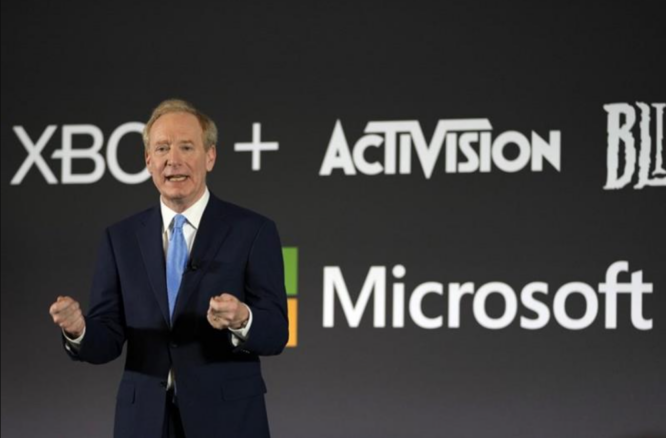
Microsoft’s $69-billion buyout of Activision Blizzard was approved by the EU on Monday, weeks after the British competition regulator blocked it.
In one of Washington’s largest IT industry consolidation interventions, the Federal Trade Commission (FTC) sued to halt the merger last year.
Xbox owner Microsoft’s massive offer for Activision Blizzard early last year raised antitrust worries by creating the world’s third-largest gaming company by revenue behind Tencent and Sony.
Activision’s “Candy Crush” and “World of Warcraft” are Blizzard hits. It will be the largest gaming transaction ever.
The EU’s powerful antitrust watchdog, the European Commission, said approval was “conditional on full compliance with Microsoft’s commitments”.
“The commitments fully address the competition concerns identified by the commission and represent a significant improvement for cloud gaming compared to the current situation,” it said.
If Microsoft keeps its word, players may watch Activision titles on European cloud gaming streaming services.
“The European Commission has required Microsoft to license popular Activision Blizzard games automatically to competing cloud gaming services,” Microsoft vice chair Brad Smith stated.
This will allow millions of users worldwide to play these games on any device.
Experts predict Microsoft’s deal would fail unless it appeals the CMA’s ban last month.
The CMA vetoed the proposal because it may destroy competition in the fast-growing cloud gaming business and limit British players’ choices.
“If Microsoft does not win the appeal in the CAT, it cannot proceed with the acquisition even if the European Commission now approves it,” said Anne Witt, a French anti-trust law expert at EDHEC business school.

Unless Microsoft leaves the UK. She told AFP that was improbable.
If a regulator rejects a takeover, the amalgamated business cannot operate in that nation.
EU-UK conflict
Millions utilize Microsoft goods, including Windows, in Britain, a smaller market than the EU and US.
This is the first big split decision between EU and UK authorities since the UK left the bloc in 2021.
On Monday, CMA chief executive Sarah Cardell defended the regulator’s decision to criticize Microsoft’s commission-accepted suggestions.
“They would replace a free, open, and competitive market with one subject to ongoing regulation of Microsoft’s games, platforms, and conditions of sale,” she added.
Japan endorsed the acquisition.
Activision CEO Bobby Kotick applauded the commission’s “stringent remedies” and pledged “to meaningfully expand our investment and workforce throughout the EU”.

Cloud gaming boom
Microsoft wants a piece of “cloud gaming” as players transition from actual consoles to subscriptions and virtual access, allowing them to play games on mobile phones and tablets.
However, the CMA found that Microsoft controls 60–70% of cloud gaming services.
Microsoft assured authorities that the deal will expand Activision’s gaming distribution to 150 million additional users.
It has partnerships to deliver “Call of Duty” on the Nintendo console and Nvidia, Boosteroid, and Ubitus cloud gaming streaming platforms.
In Monday’s verdict, Brussels decided that Microsoft “would have no incentive to refuse to distribute Activision’s games to Sony” notwithstanding Sony’s claims.
Microsoft provided European consumers a free license to broadcast all current and future Activision Blizzard PC and console games via any cloud game streaming service, calming EU concerns.
“Competition and innovation must be protected in a fast-growing industry. Margrethe Vestager, EU competition commissioner, stated, “Our decision is a significant step.”
Last year, the US FTC sued to stop the merger, arguing that Microsoft had purchased smaller gaming businesses to make the games exclusive.
